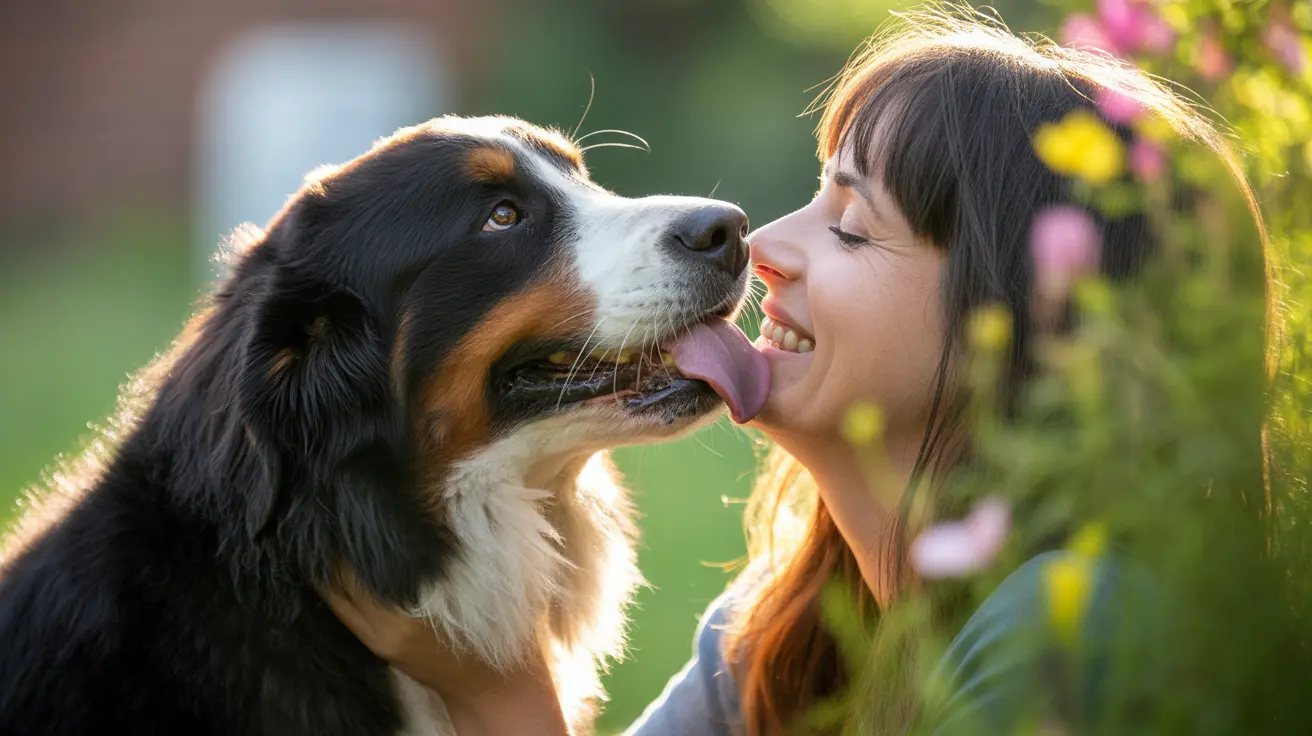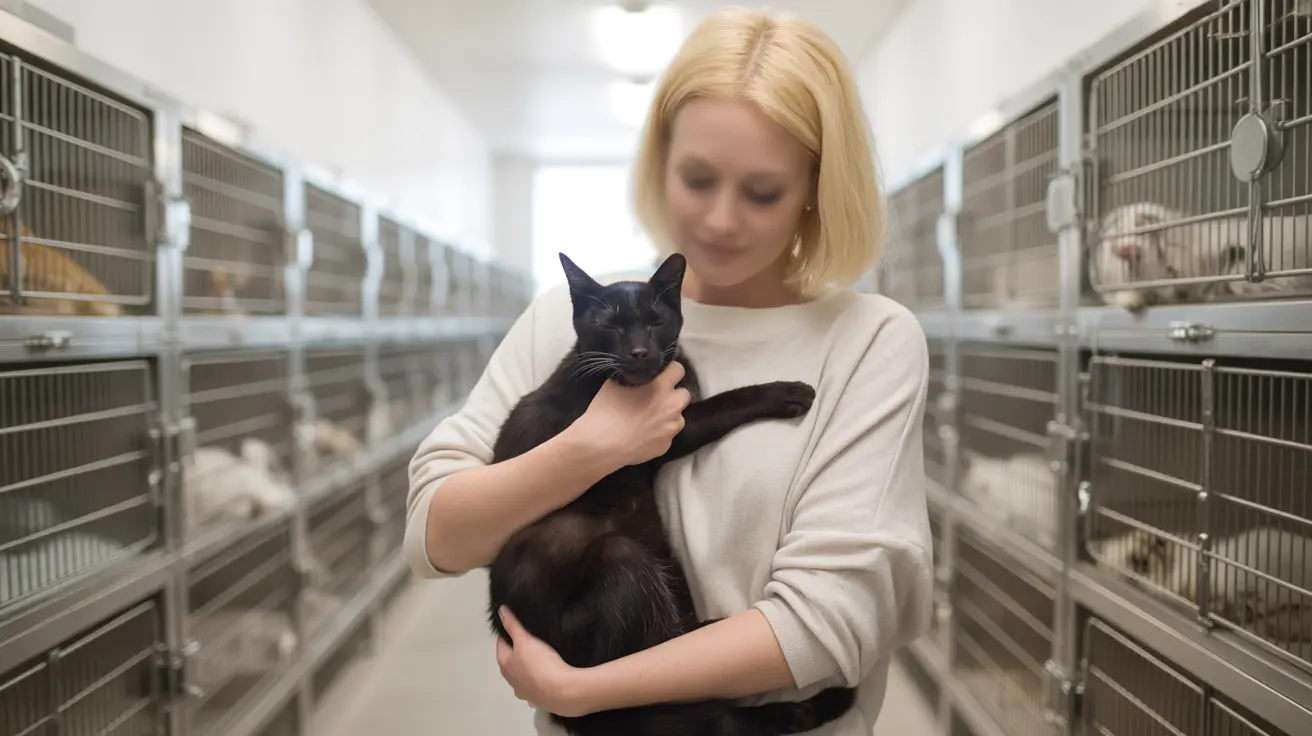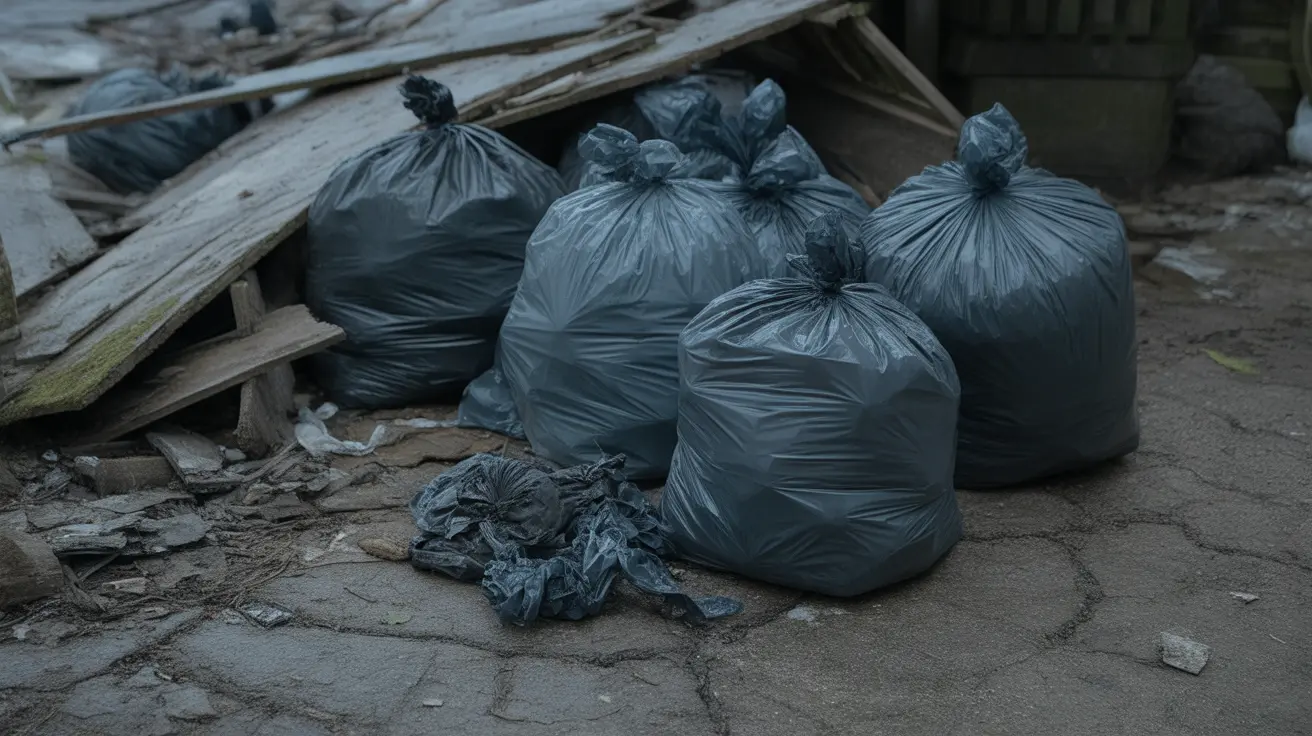When your dog aggressively licks your face, it can be both endearing and concerning. This common canine behavior has deep roots in both wild and domestic dog psychology, and understanding why your furry friend engages in such intense licking can help you better respond to their needs.
Let's explore the various reasons behind aggressive face licking, when it might signal a problem, and how to manage this behavior effectively.
Natural Instincts and Communication
Dogs are descendants of wolves, and their licking behavior stems from ancient pack dynamics. Wolf pups would lick their mother's face to stimulate food regurgitation, a behavior that has evolved in domestic dogs as a form of communication and bonding.
When your dog aggressively licks your face, they might be expressing:
- Submission and respect
- Desire for attention or interaction
- Affection and bonding attempts
- Hunger or other basic needs
Emotional and Behavioral Motivations
Aggressive face licking often indicates strong emotional states or behavioral patterns that deserve attention. Your dog might be experiencing:
- Anxiety or stress
- Excitement upon your return home
- Compulsive behavior patterns
- Social bonding needs
Understanding these emotional triggers can help you address the root cause of excessive licking rather than just treating it as a nuisance behavior.
Medical Considerations
Sometimes, aggressive face licking can signal underlying health issues that require veterinary attention. Watch for these potential medical causes:
- Gastrointestinal problems
- Allergies or skin conditions
- Neurological issues
- Pain or discomfort
- Hormonal imbalances
Managing Excessive Face Licking
If your dog's aggressive licking becomes problematic, consider these management strategies:
- Establish clear boundaries and consistent training
- Redirect the behavior to appropriate activities
- Provide regular exercise and mental stimulation
- Consider professional behavioral training
- Schedule regular veterinary check-ups
Frequently Asked Questions
Why does my dog lick my face aggressively when I come home?
Dogs often lick faces aggressively upon reunion due to excitement and social bonding behavior. This greeting ritual can also be their way of gathering information about where you've been through taste and smell.
Is aggressive face licking a sign of affection or anxiety in dogs?
It can be both. While face licking is often a sign of affection, excessive or aggressive licking might indicate anxiety or stress. Observe other body language cues to determine the underlying emotion.
How do I stop my dog from licking my face too much?
Consistently redirect the behavior, avoid reinforcing it with attention, and teach alternative greetings. Use positive reinforcement when your dog exhibits calm behavior instead of excessive licking.
When should I be concerned about my dog's excessive face licking?
Be concerned if the licking becomes compulsive, interferes with daily activities, or is accompanied by other behavioral changes. Also watch for signs of medical issues like gastrointestinal problems or anxiety.
Can aggressive licking indicate a medical problem in dogs?
Yes, excessive licking can signal various medical issues including gastrointestinal problems, allergies, pain, or neurological conditions. Consult your veterinarian if the behavior suddenly increases or is accompanied by other symptoms.
Conclusion
While aggressive face licking is often normal dog behavior, understanding its underlying causes helps you respond appropriately. Whether it's expressing affection, seeking attention, or signaling a potential health issue, monitoring and managing this behavior ensures both you and your dog maintain a healthy relationship.






